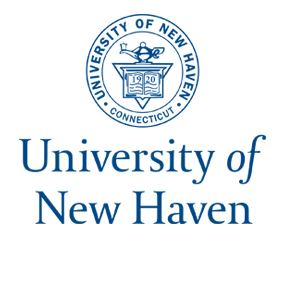
University News
University of New Haven Acquires Railroad Salvage Building and Land Adjacent to Main Campus
The 130,000 square-foot-building and 12-acre lot will be reimagined to create a pioneering Research and Development Center.
The Charger Blog
As the inaugural holder of the University’s Stewart Professorship in Criminal Justice and Community Policing, Lorenzo Boyd, Ph.D., is excited to continue to make a meaningful impact on his students, communities, and law enforcement professionals.
October 14, 2021
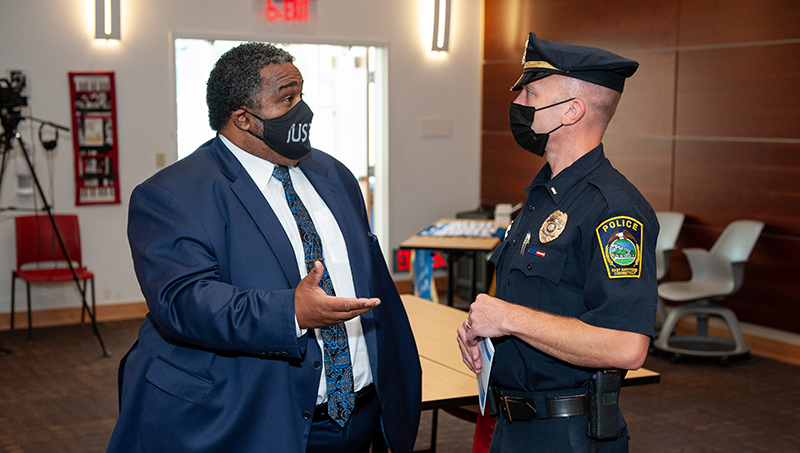
For Lorenzo Boyd, Ph.D., police-community relations isn’t just his job – it’s his passion and his calling. He endeavors to help his students at the University to also become change agents in community policing.
An expert on urban policing, diversity issues in criminal justice, race and crime, and criminal justice systems, Dr. Boyd has been selected as the inaugural holder of the newly established Stewart Professorship in Criminal Justice and Community Policing. He says the professorship acknowledges the need for transformational work in community policing – especially in communities of color.
“This opportunity is so very important because it can be a catalyst for bridging an understanding of community policing issues,” said Dr. Boyd, who served for 14 years in the Suffolk County Sheriff’s Department in Massachusetts. “We need the police and affected communities to better understand each other in order to move forward. It will also help students get in closer alignment with police as they work to gather information from communities and set future policy.”
The professorship was established through the generosity of Shelley Stewart Jr. ’90 EMBA, ’16 Hon., a member of the University’s Board of Governors, and his wife Ann, who both have degrees in criminal justice. The Stewarts, who also support a University of New Haven scholarship for African American students, are looking forward to the opportunities the professorship will create for students and communities.
Shelley Stewart, who serves as managing partner and founder of Bottom Line Advisory, LLC. and is a former vice president and chief procurement officer for DuPont USA, envisions the professorship enabling Dr. Boyd to share his expertise and experience with students, while working closely with communities and local and national police forces.
“It’s all about the students,” said Stewart, who chairs the University’s Board of Governors’ diversity, equity, and inclusion committee. “We hope they get a chance to see both sides of policing through the work Lorenzo will be doing both in and out of the classroom with the students. Given all that’s gone on in the last year or so, the impact of community policing is more relevant now than it’s ever been.”
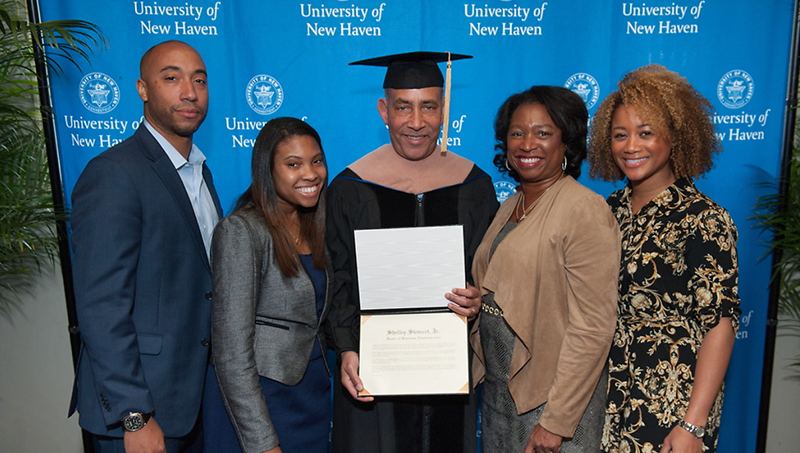
Criminal justice is a field that is especially personal for Ann Stewart. During her distinguished career, she served as an administrator for the state’s court system, where she worked with world-renowned forensic scientist Henry C. Lee, Ph.D., a professor emeritus at the University. She is now a member of the Henry C. Lee College of Criminal Justice and Forensic Sciences Advisory Board.
“It is very meaningful for us to be able to support this professorship,” she said. “It is great to be able to make a difference for the students. It is a big deal for them to be able to learn from someone like Lorenzo who is making a difference.”
The professorship will enable Dr. Boyd, who served as the University’s vice president for diversity and inclusion and chief diversity officer, to return to the classroom. He expects to “translate research into practice” both in the classroom and in the community.
Dr. Boyd will be involved in police reform debates and discussions, interacting with individuals such as police officials, community members, and lawmakers, and bringing his experience back to the classroom. He wants students to get a close look at the important police reform initiatives, including research and outreach, that he is involved with.
“Lorenzo is a great professor, and I think this gives him the latitude to do more with the students at the University,” said Shelley Stewart. “I think it’s so important for those of us who have the opportunity to give back to help the University help the students. Anything we can do to enhance the students’ experience at the University is critically important.”
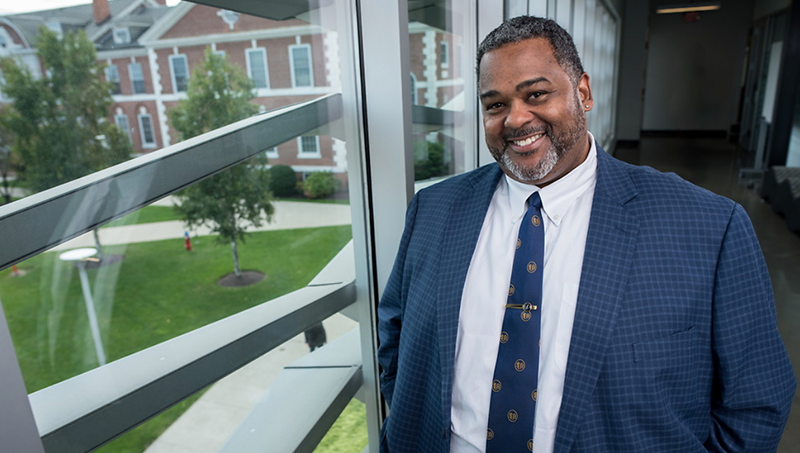
Dr. Boyd, who leads the Connecticut Institute for Youth and Police Relations with fellow criminal justice professor Danielle Cooper, Ph.D., CPP, helped lead an innovative training program earlier this year that taught police officers from Greater Hartford how to cultivate strong relationships in their communities. Former director of the University’s Center for Advanced Policing, Dr. Boyd has extensive experience in police training.
Dr. Boyd is focused on gaining a deeper understanding of community-policing hurdles and offering options for overcoming them. He is grateful the professorship will give him the resources to focus on policing issues while bringing the University into the national policing dialogue in new and important ways.
“The Stewart Professorship is an honor and a privilege,” said Dr. Boyd. “I am thankful to Shelley and Ann Stewart for believing in me and entrusting me with this honor. It is one that I am not taking lightly.
“When people are given a wide berth to do what they are meant to do, great things tend to happen – not just for students and the University, but for society,” continued Dr. Boyd. “Police- community relations is not just an academic endeavor. When relations break down, real lives are often lost, and many times they are the lives of people of color. We must take this opportunity seriously and work tirelessly to build bridges of understanding, empathy, and compassion.”

University News
The 130,000 square-foot-building and 12-acre lot will be reimagined to create a pioneering Research and Development Center.
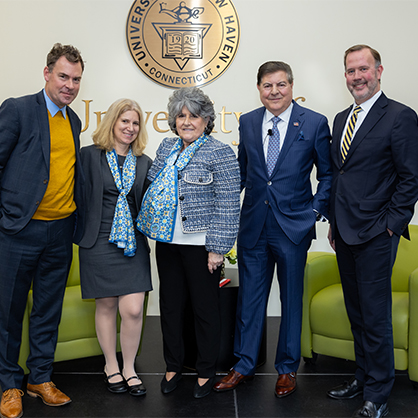
The Charger Blog
In an engaging fireside chat with the University of New Haven President Jens Frederiksen, Ph.D., Frank Martire ’77 MBA, an esteemed business leader, philanthropist, and advocate for higher education, shared insights on leadership, navigating challenges, and staying true to your values in a complex world.

The Charger Blog
Students share their transformative moments from studying at the University’s Prato campus during the Fall 2024 semester.